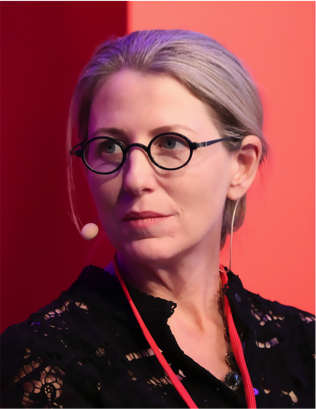BIOGRAPHY:  Professor Sarah KENDERDINE researches at the forefront of interactive and immersive experiences for galleries, libraries, archives and museums. In widely exhibited installation works, she has amalgamated tangible and intangible cultural heritage with new media art practice, especially in the realms of interactive cinema, augmented reality and embodied narrative. Sarah has produced 90 exhibitions and installations for museums worldwide including a museum complex in India and received a number of major international awards for this work.
Professor Sarah KENDERDINE researches at the forefront of interactive and immersive experiences for galleries, libraries, archives and museums. In widely exhibited installation works, she has amalgamated tangible and intangible cultural heritage with new media art practice, especially in the realms of interactive cinema, augmented reality and embodied narrative. Sarah has produced 90 exhibitions and installations for museums worldwide including a museum complex in India and received a number of major international awards for this work.
In 2017, Sarah was appointed professor at the École polytechnique fédérale de Lausanne (EPFL), Switzerland where she has built the Laboratory for Experimental Museology (eM+), exploring the convergence of cultural heritage, imaging technologies, immersive visualisation, visual analytics, digital aesthetics and cultural (big) data. eM+ engages in research from scientific, artistic and humanistic perspectives and promotes a post-cinematic multisensory engagement using experimental platforms.
Since 2017 Sarah is director and lead curator of EPFL Pavilions a new art/science initiative housed in a seminal Kengo Kumar building inaugurated in late 2016 (formerly known as ArtLab). EPFL Pavilions blends experimental curatorship and contemporary aesthetics with open science, digital humanism and emerging technologies.
In 2020, she was named in the Museum Influencer List 2020 – The Power 10 by Blooloop and, Switzerland's Top Digital Shapers 100 by Bilanz in 2020 and 2021. In 2021, Sarah was appointed corresponding fellow of The British Academy. In 2021, she curates and produces a major exhibition on Deep Fakes: Art and Its Double, EPFL Pavilions, Switzerland.
https://sarahkenderdine.info/
ABSTRACT: Computational museology: Experimental interfaces to cultural (Big) Data
Computational museology is a scaffold unites artificial intelligence with data curation, ontology with visualization, and communities of publics and practitioners with embodied participation through immersive and interactive interfaces. Exploiting a series of experimental and embodied platforms, the discussion argues for a reformulation of engagement with digital archives and digital objects at the intersection of the tangible and intangible. The performative interfaces and repertoires described demonstrate opportunities to reformulate narrative in a digital context and the ways they support personal affective engagement with cultural memory.
|